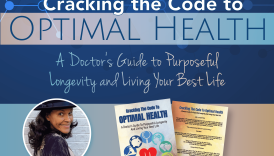The Connection Between Diet and a Healthy Lifestyle

Eating well is a foundational aspect of leading a healthy life. It isn’t merely about following the latest diet trends but understanding the importance of a balanced diet and its multitude of benefits. Many people often think they need to deprive themselves of their favorite foods to maintain a healthy lifestyle; however, this isn’t the case. A balanced diet is about making smarter choices.
- The Connection Between Diet and a Healthy Lifestyle
- The Essence of Balanced Nutrition
- Importance of a Balanced Diet
- Nutrient-Rich Foods
- Impact on Overall Health
- The Role of Diet in Disease Prevention
- Heart Disease
- Type 2 Diabetes
- Weight Management through Healthy Eating Habits
- Portion Control
- Mindful Eating
- Energy Levels and Diet
- Foods for Sustained Energy
- Effects of Sugar and Caffeine
- Mental Health and Nutrition
- Gut-Brain Connection
- Foods for Brain Health
- Building a Strong Immune System with Diet
- Antioxidant-Rich Foods
- Probiotics and Immunity
- Hydration and Its Impact on Health
- Benefits of Water
- Dehydration Warning Signs
- Mediterranean Diet: A Model for Healthy Living
- Key Components
- Health Benefits
- The Role of Supplements in a Balanced Diet
- Vitamins and Minerals
- Considerations for Supplement Use
The Essence of Balanced Nutrition
Think of nutrition as a colorful plate overflowing with nutrients, flavors, and variety. A balanced diet consists of different food groups, each playing a key role in body functions. Some essential components include:
- Fruits and Vegetables: Packed with vitamins and minerals.
- Proteins: Vital for growth and repair.
- Whole Grains: Important for energy and digestion.
Incorporating a diverse range of foods can also make meals enjoyable and satisfying. For instance, swapping out processed snacks for fresh berries or nuts can help anyone feel energized without compromising on taste. Embracing balance not only helps in maintaining physical health but can also enhance the overall quality of life.
Importance of a Balanced Diet
A balanced diet is critical for maintaining optimal health and well-being. It’s not just about counting calories; it’s about fueling the body with nutrient-rich foods that promote overall vitality.
Nutrient-Rich Foods
Nutrient-rich foods provide essential vitamins and minerals that our bodies need to function efficiently. These foods are often unprocessed or minimally processed and include:
- Fruits: Such as berries and apples, high in antioxidants.
- Vegetables: Leafy greens like spinach and kale, rich in calcium and iron.
- Whole Grains: Foods like quinoa and brown rice, which are great sources of fiber.
Incorporating these foods into daily meals can lead to better energy levels and improved mood.
Impact on Overall Health
Eating a balanced diet significantly impacts physical and mental health. Research has shown that individuals who consume a variety of nutrient-rich foods often experience:
- Improved immune function: Less susceptibility to illness and infections.
- Better mental clarity: Enhanced focus and reduced anxiety levels.
For example, after incorporating more vegetables into their diet, many individuals report feeling lighter and more energetic throughout the day. A balanced diet isn’t just a choice; it’s a lifestyle that can lead to lasting health benefits.
The Role of Diet in Disease Prevention
As we explore the significance of a balanced diet further, we find that it plays a crucial role in preventing various diseases. Making informed food choices can significantly reduce the risk of chronic conditions.
Heart Disease
Heart disease remains one of the leading causes of death globally. However, research indicates that a nutrient-dense diet can lower this risk. For instance, including foods rich in omega-3 fatty acids, such as fatty fish, flaxseeds, and walnuts, supports heart health. Some dietary tips include:
- Reduce saturated fats: Opt for lean proteins and healthy oils.
- Limit sodium: Use herbs and spices for seasoning instead of salt.
By swapping out processed meats and high-sugar snacks for healthier alternatives, individuals often notice improved heart health.
Type 2 Diabetes
Type 2 diabetes is closely linked to diet and lifestyle. Eating a balanced diet rich in whole foods can help stabilize blood sugar levels. Key strategies include:
- Choose complex carbohydrates: Foods like whole grains, beans, and legumes help maintain steady energy levels.
- Snack smartly: Opting for nuts or fruits instead of sugary snacks can significantly reduce blood sugar spikes.
Many people who have restructured their diets report better energy levels and improve overall wellness. Adopting these dietary habits not only helps with disease prevention but also promotes a healthier lifestyle.
Weight Management through Healthy Eating Habits
Transitioning from the role of diet in disease prevention, it’s clear that healthy eating habits are also vital for effective weight management. Embracing the right strategies can help individuals achieve and maintain their desired weight without sacrificing enjoyment.
Portion Control
One of the most effective methods for managing weight is practicing portion control. It’s common for people to underestimate serving sizes. To combat this, consider the following tips:
- Use smaller plates: This simple visual trick can help make portions appear larger.
- Measure servings: Initially measuring out portions can aid in developing an intuitive understanding of appropriate sizes.
By keeping an eye on portions, individuals can still enjoy their favorite foods without overindulging.
Mindful Eating
Mindful eating complements portion control by encouraging individuals to savor each bite. Establishing a mindful eating practice can transform meal times. Some strategies include:
- Slow down: Taking time to chew food thoroughly and enjoy the flavors.
- Limit distractions: Eating without screens or multitasking allows for greater awareness of hunger cues.
Many have found that when they focus on their meals, they feel more satisfied and are less likely to overeat. Adopting these habits can lead to a more balanced relationship with food and help maintain a healthy weight.
Energy Levels and Diet
Building on the importance of healthy eating habits for weight management, it’s essential to recognize the direct impact of diet on energy levels. The foods we consume can significantly influence how energized we feel throughout the day.
Foods for Sustained Energy
Certain foods provide a longer-lasting energy boost compared to others. Opting for complex carbohydrates and wholesome ingredients can keep energy levels steady. Some excellent choices include:
- Whole grains: Such as oats and quinoa, which release energy slowly.
- Fruits and vegetables: Bananas and sweet potatoes are great for quick and sustained fuel.
- Protein sources: Nuts, seeds, and legumes not only offer protein but also contribute to a balanced energy supply.
Incorporating these foods can prevent the dreaded mid-afternoon slump and help maintain focus.
Effects of Sugar and Caffeine
While sugar and caffeine may provide quick energy, their effects can be misleading. Excessive sugar intake often leads to energy spikes followed by crashes, while caffeine can disrupt sleep patterns, affecting overall energy levels. Think about:
- Increased craving for sugary snacks: They might offer a short-term high but usually result in fatigue later.
- Over-reliance on caffeine: Many individuals find they need more coffee to get the same effect, which can lead to dependency.
Balancing the intake of these substances with nutrient-rich options will help achieve sustained energy without the undesirable highs and lows. Making these small, mindful changes can lead to significant improvements in daily energy levels.
Mental Health and Nutrition
Continuing from the impact of diet on energy levels, it’s crucial to explore how nutrition affects mental health. The connection between our gut and brain is increasingly recognized, highlighting the importance of what we eat not just for physical, but also mental well-being.
Gut-Brain Connection
The gut-brain axis refers to the communication network linking our digestive system and brain function. Research indicates that the health of our gut can directly influence our mood and mental health. Key points to consider include:
- Microbiome health: A balanced gut microbiome can lead to improved emotional well-being.
- Serotonin production: Approximately 90% of serotonin is produced in the gut, underlining the importance of gut health for mood regulation.
Experiments with dietary changes often reveal that individuals experience less anxiety when maintaining a healthy gut.
Foods for Brain Health
To support mental health, prioritizing brain-healthy foods is essential. Here are some top picks for boosting brain function:
- Fatty fish: Salmon and trout provide omega-3 fatty acids, crucial for cognitive function.
- Berries: Rich in antioxidants, berries can enhance brain plasticity.
- Leafy greens: Spinach and kale are high in nutrients that support brain health.
Integrating these foods into daily meals can lead to a noticeable improvement in mood and mental clarity. In many cases, individuals have reported feeling sharper and more focused after making these dietary adjustments, illustrating the power of nutrition in mental health.
Building a Strong Immune System with Diet
Having established the significant link between mental health and nutrition, it’s equally important to understand how diet plays a pivotal role in strengthening our immune system. A robust immune system is our best defense against illnesses and infections.
Antioxidant-Rich Foods
Antioxidants help to combat oxidative stress in the body, which can weaken our immune response. Incorporating a variety of antioxidant-rich foods can make a notable difference in overall health. Consider adding:
- Berries: Such as blueberries and strawberries, which are high in antioxidants.
- Nuts and seeds: For instance, walnuts and flaxseeds are great sources of healthy fats and antioxidants.
- Dark chocolate: Yes, indulging in high-quality dark chocolate can also provide antioxidants!
Including these foods in your diet can help stave off illness and support a healthy immune response.
Probiotics and Immunity
Probiotics are another powerful ally in boosting the immune system. These beneficial bacteria reside in the gut and play a role in maintaining gut health. Some key sources include:
- Yogurt: Opt for varieties with live cultures for added benefits.
- Fermented foods: Foods like sauerkraut and kimchi are excellent sources of probiotics.
Many people notice that after incorporating more probiotic-rich foods, they experience fewer colds and improved digestive health. Just like that, small dietary adjustments can lead to a stronger immune system, helping to keep illnesses at bay.
Hydration and Its Impact on Health
Having explored the significance of a strong immune system through diet, it’s essential to recognize that hydration is equally crucial for optimal health. Water is often overlooked but is fundamental in supporting nearly every bodily function.
Benefits of Water
Water plays a vital role in maintaining overall health and well-being. Here are several key benefits:
- Regulates body temperature: Staying hydrated helps maintain a consistent body temperature.
- Supports digestion: Water aids in breaking down food and preventing constipation.
- Enhances physical performance: Proper hydration can boost stamina and reduce fatigue during exercise.
Many individuals notice that simply increasing their water intake leads to improved energy levels and clearer skin.
Dehydration Warning Signs
Recognizing the signs of dehydration is essential, as even mild dehydration can negatively affect performance and mood. Common warning signs include:
- Thirst: The most obvious indicator that your body needs water.
- Dry mouth: A sign that your body is lacking fluids.
- Fatigue or dizziness: Feeling tired or lightheaded can indicate that hydration is insufficient.
Paying attention to these signals and making a conscious effort to drink water throughout the day can enhance overall health and prevent unwanted side effects from dehydration. A hydrated body is a happy body!
Mediterranean Diet: A Model for Healthy Living
Transitioning from the importance of hydration, the Mediterranean diet has garnered attention as a model for healthy living. This diet emphasizes fresh, whole foods and an enjoyable approach to eating, making it both appealing and sustainable for long-term health.
Key Components
The Mediterranean diet is rich in variety, focusing on high-quality ingredients. Some key components include:
- Fruits and Vegetables: Fresh and seasonal, offering a myriad of vitamins and minerals.
- Whole Grains: Options like quinoa, barley, and whole-grain bread provide fiber and energy.
- Healthy Fats: Olive oil is a staple, along with nuts and seeds, which are essential for heart health.
- Lean Proteins: Fish and poultry are favored over red meat.
This vibrant mix creates flavorful meals that nourish the body and delight the palate.
Health Benefits
Adopting the Mediterranean diet has numerous health benefits. Research shows it may help:
- Reduce the risk of heart disease: The healthy fats and fiber contribute to heart health.
- Support weight management: Its balanced approach often leads to better weight control.
- Enhance brain health: The combination of nutrients has been linked to a lower risk of cognitive decline.
Many individuals who have made this dietary shift report feeling healthier, more energetic, and enjoying food more than ever. The Mediterranean diet isn’t just a meal plan; it’s a lifestyle that promotes overall well-being.
The Role of Supplements in a Balanced Diet
As we wrap up our discussion on the Mediterranean diet and its comprehensive health benefits, it’s essential to highlight the role of supplements in achieving nutritional balance. While whole foods should always be the foundation of our diet, supplements can help fill in the gaps when needed.
Vitamins and Minerals
Vitamins and minerals play critical roles in overall health. They support vital body functions, and sometimes our diets may not provide adequate amounts. Some key vitamins and minerals to consider include:
- Vitamin D: Essential for bone health, often lacking in people who don’t get sufficient sun exposure.
- Magnesium: Supports muscle function and energy production, found in nuts and leafy greens.
- Omega-3 Fatty Acids: Beneficial for heart and brain health, often sold as fish oil supplements.
Incorporating these supplements can provide an added health boost, especially for those with specific dietary restrictions.
Considerations for Supplement Use
While supplements can be beneficial, using them wisely is crucial. Here are some considerations:
- Consult a healthcare professional: Before starting any supplements, it’s wise to discuss them with a doctor or nutritionist.
- Understand your needs: Analyze your diet to identify any deficiencies.
- Avoid over-supplementation: More isn’t always better; excessive intake can lead to toxicity or adverse effects.
Balancing a healthy diet with appropriate supplements may enhance overall well-being, helping individuals achieve their nutrition and health goals. The right approach allows everyone to enjoy the benefits of a nutrient-rich lifestyle while filling in the gaps where necessary.





